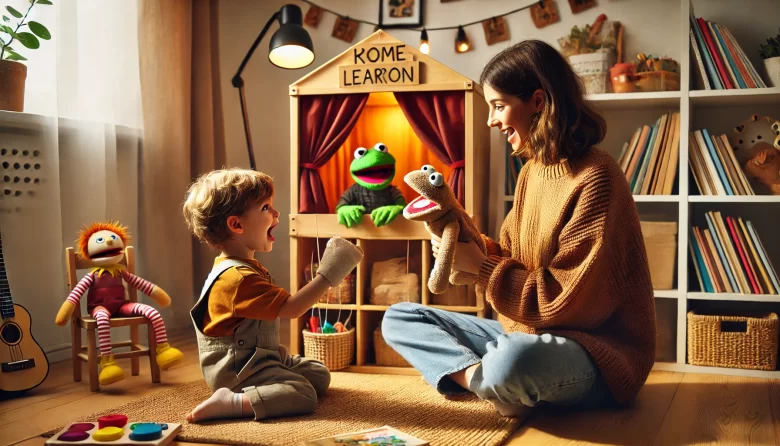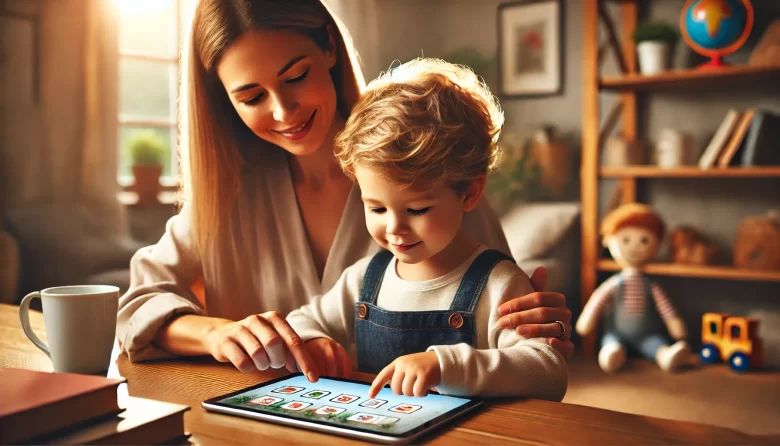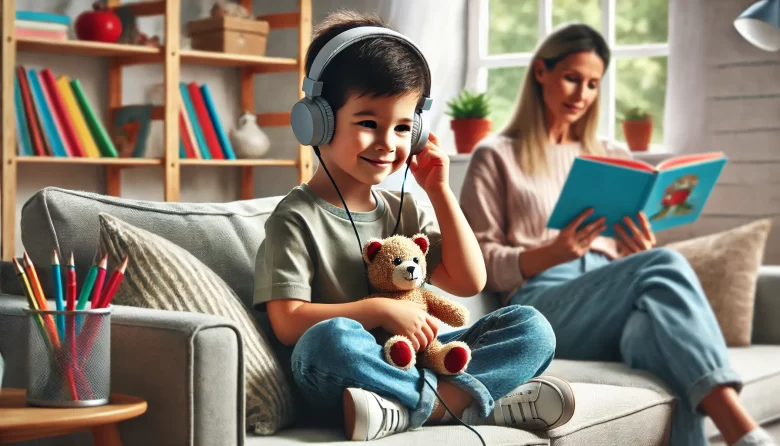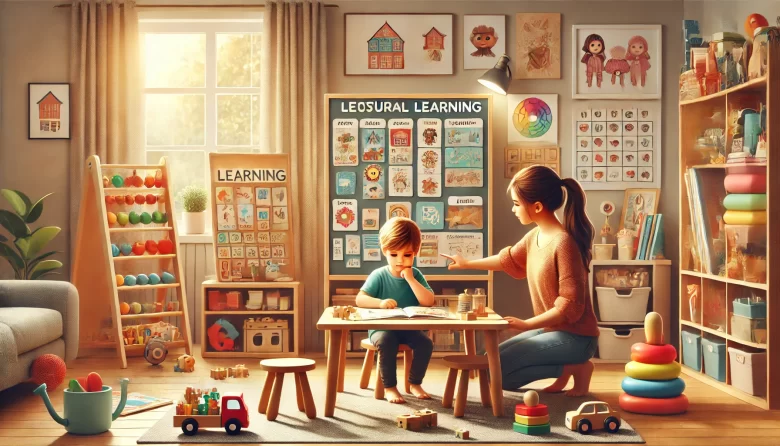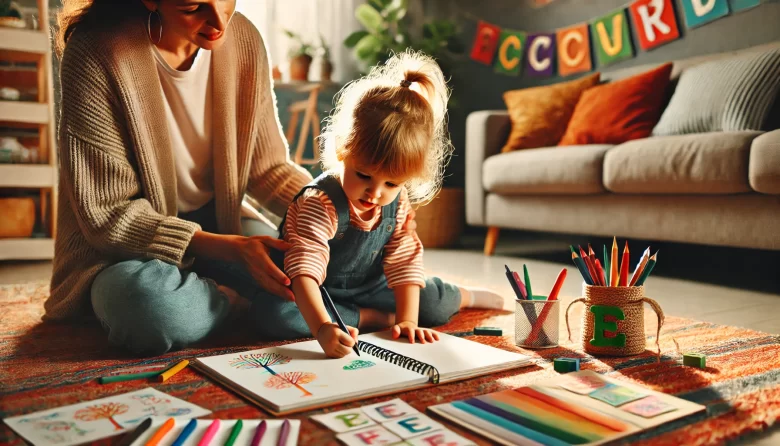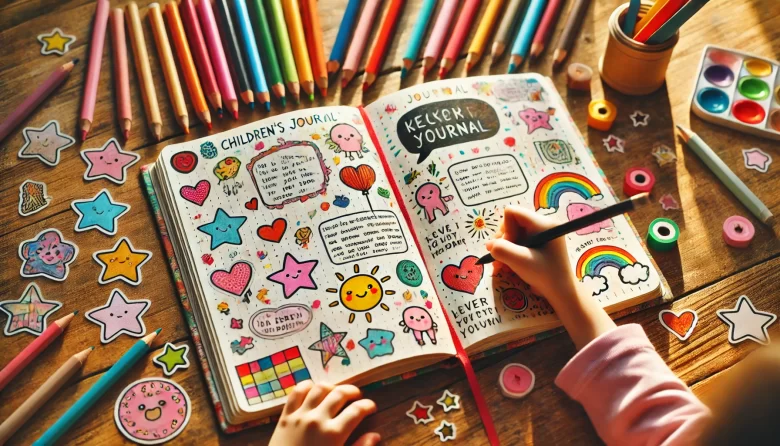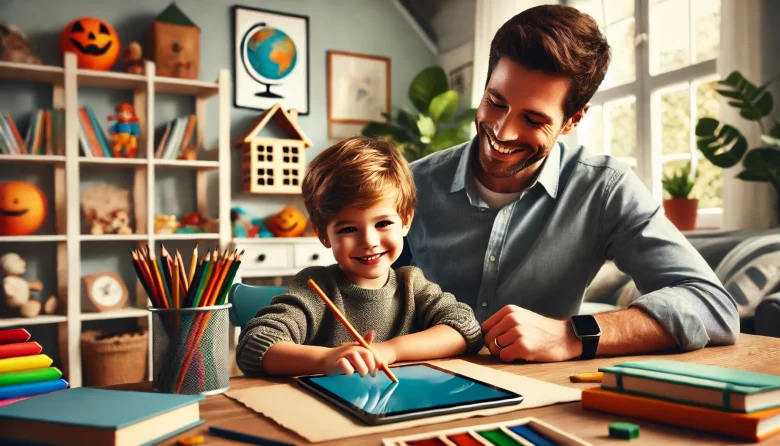Puppets and small theaters are powerful tools for early childhood education. They transform learning into an engaging, interactive experience that encourages creativity, storytelling, and social-emotional development. Whether you’re teaching language skills, social values, or academic concepts, puppets bring lessons to life in a fun and memorable way. In this article, we’ll explore the benefits of …
Music plays a vital role in a child’s early development. It helps improve memory, enhances language skills, and even boosts emotional well-being. Best of all, you don’t need to be a professional musician to incorporate music into your child’s learning at home! In this article, we’ll explore the benefits of music in early childhood education …
In today’s digital age, screens are an unavoidable part of daily life, and young children are exposed to technology earlier than ever. From educational apps and online classes to interactive games and digital storybooks, screens can be valuable learning tools when used appropriately. However, excessive screen time or poor-quality content can negatively impact a child’s …
Podcasts have become a powerful educational tool for children, offering a screen-free way to learn, imagine, and explore new ideas. Whether it’s storytelling, science, history, or language learning, the right podcasts can make learning engaging and interactive—even during car rides, playtime, or bedtime. But how exactly do podcasts benefit children’s learning, and how can parents …
Establishing a structured learning routine for young children is essential for their cognitive, emotional, and social development. A predictable routine helps kids feel secure, builds healthy learning habits, and improves their ability to focus and absorb new information. However, creating an effective learning routine is about balance—it should be structured but flexible enough to adapt …
Creating an emotionally safe environment at home is essential for a child’s well-being and development. When children feel emotionally secure, they are more likely to express their feelings, develop self-confidence, and build strong relationships. Emotional safety provides the foundation for healthy communication, emotional regulation, and personal growth. In this article, we’ll explore the importance of …
Writing is a fundamental skill that supports language development, creativity, and critical thinking. Encouraging young children to engage with writing from an early age builds confidence and lays the foundation for future literacy success. While formal writing comes later, early exposure to drawing, scribbling, and storytelling helps children develop fine motor skills and understand the …
Providing children with enriching learning experiences doesn’t have to be expensive. Many parents believe that high-quality educational activities require costly materials, special programs, or expensive toys. However, with a little creativity and resourcefulness, you can create engaging and effective learning experiences using everyday items. In this article, we will explore practical tips for planning budget-friendly …
Encouraging children to keep a journal is a fantastic way to stimulate their creativity, improve their writing skills, and help them express their emotions. A personal journal allows kids to explore their thoughts, tell stories, and develop a lifelong love for writing. In this article, we’ll explore the benefits of journaling for children, how to …
In today’s digital world, children are exposed to screens from an early age. While technology offers many educational benefits, excessive screen time can lead to dependency, reduced physical activity, and difficulties in social interactions. So, how can parents ensure a healthy relationship with technology while still allowing kids to enjoy its benefits? In this comprehensive …

